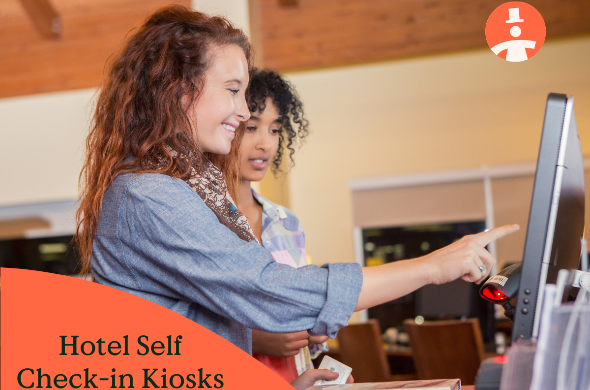What are hotel door locks?
A hotel door lock is more than just a mechanism to open and close a door. It’s the first line of defence against unwanted intruders and a key element in ensuring the security of your property. These locks come in various types, from traditional keyed locks to high-tech smart locks, and they all serve the same purpose – to keep your guests and their belongings safe.
As a small property owner, nothing matters more than the comfort and security of you and your guests. It’s all about creating a safe and welcoming environment where guests can relax without worrying about their safety.
But a lock is only as good as its condition. Over time, locks can wear out, become outdated, or simply stop working as effectively as they should. When this happens, the security of your hotel room doors can be compromised. That’s why it’s so important to be proactive in replacing locks that aren’t up to scratch.
Being proactive doesn’t just mean waiting until a lock breaks to replace it. It means regularly checking your locks for signs of wear and tear, staying up-to-date with the latest advancements in lock technology, and being ready to upgrade your locks when necessary.
Simplify Your Hotel Management with Little Hotelier
Streamline operations and enhance guest experience. Discover the power of Little Hotelier today
Learn moreTypes of hotel door locks
Hotel door locks are an essential part of hotel security, ensuring the safety and privacy of guests. They come in various types, each with its own set of advantages and potential drawbacks. Let’s take a look at some of the most common types of hotel door locks:
Keyed Hotel Door Locks
These are your old-school, classic door locks that need a physical key to open. They’re pretty straightforward, but if you lose the key or it gets stolen, that could be a problem. Plus, it can be a bit of a hassle for the hotel staff to keep track of all those keys.
Key Card Hotel Door Locks
These are the ones you see a lot these days. You get a card with a magnetic strip that you swipe to unlock the door. If you lose it, no biggie, the hotel can just reprogram a new one. But beware, these cards can sometimes get demagnetized and stop working.
Keypad Hotel Door Locks
With these locks, you punch in a code to get in. No need to worry about losing keys or cards, but if you forget the code or someone else gets hold of it, that could be a security issue. Changing the codes regularly can help keep things secure.
Keyless Hotel Door Locks (RFID, Biometric, Voice Activated)
These are the high-tech options. They use things like RFID (kind of like those tap-to-pay credit cards), biometrics (think fingerprint or face recognition), or even voice commands to unlock the door. They’re super secure and convenient, but they can be pricier to install and maintain.
Smart Hotel Door Locks (Mobile, App, QR)
These are the latest and greatest in door lock tech. You can unlock the door with your smartphone using an app or a QR code. It’s super convenient for guests who are always on their phones, and it can also boost security since access can be easily controlled and tracked. But, they can be a bit complicated to set up and you need a compatible smartphone to use them.
When to replace hotel door locks: Questions you need to ask
Knowing when to replace the locks on your hotel doors is crucial for maintaining security and guest satisfaction. It’s not just about dealing with broken or outdated locks – it’s about ensuring your property stays modern, secure, and convenient for your guests. Here are seven questions you should ask yourself to figure out if it’s time for a lock upgrade:
1. Are hotel door locks showing wear and tear?
If your locks are getting worn, damaged or are showing severe tarnish, rust or other visible signs of wear then it is a sure sign that your locks will need to be replaced.
Damaged or worn locks can pose a serious weakness in your B&B’s security. Not only are they easier to pick or break, they can also be more difficult to open legitimately as time goes on.
Apart from the visible signs of wear, another sign of wear is “sticky” locks. Sticky locks can occur when the key is not sliding into the lock easily or there is resistance when you turn the key. You may need to jiggle the key for it to work properly. This is a sure indicator that the internal mechanism is getting old and worn.
A short term solution to sticky locks is the use of spray lubricant such as WD40. This can also help remove any potential dirt and grime that could be clogging up your lock.
However, if your locks continue to show signs of wear, you will need to get them replaced immediately to avoid any inconvenient malfunctions. Choosing high-quality, rustproof locks are the best option to protect your locks from early wear and tear.
2. Has your hotel recently been broken into?
Having your property or small hotel broken into is a horrible feeling. During these incidents, it is not uncommon for criminals to have picked or damaged the locks to your property. Most criminals are not the most knowledgeable in lock picking, so they will have likely permanently damaged your locks.
Even if it seems that your locks have not been damaged when the burglars gained access, it is still a good idea to get your locks changed. It is possible that the thief had taken the keys as well. In this case, a locksmith can check if the locks have been damaged.
If the locks are still in good working order, you can get your existing locks re-keyed, which will save you the money associated with buying a whole new locking system.
3. Have you just moved into a new premise?
If you have just moved into a new property, it is always a good idea to get the locks changed to increase the level of your hotel’s security.
Even though you should have received all the keys to your property, you don’t know if there were other keys that the previous owners forgot about. You don’t know how many duplicate keys were made and who might have them.
To avoid any potential break-ins and to give you and your guests peace of mind, have all of your locks re-keyed when you move into your new premises.
4. When was the last time you changed your hotel room door locks?
Even if you haven’t had any recent problems with your locks, it is always a good idea to change your locks every couple of years.
Security technology changes, which can make older locks become obsolete. Whilst it isn’t dire, it is important to keep up with these changes if you are worried about the security of your premises.
5. Are you worried about unauthorised duplicate keys?
Throughout the life of your business, you will have many guests coming and going. Just because your guests have returned all the keys they were given doesn’t guarantee that there were no other duplicates made. To protect your hotel against this possibility, it is a good idea to change your locks to non-duplicate security keys. A better alternative is to consider getting digital locks, so you can change the passcode after each visitor.
6. Have you recently completed a hotel renovation?
Have you just finished renovating your small hotel or bed and breakfast? If you have given a spare key to a contractor or two, your hotel’s security could be at risk. Even if your contractor was trustworthy, they may have let another subcontractor borrow the keys.
In some cases, you may not know your contractors as well as you think you do. To be better safe than sorry, get your locks re-keyed.
7. Do you want to save on your business security?
If you want to save money on your security, get your locks re-keyed instead of getting new locks. It is not as expensive as a full lock change, however, it still provides the security you need if a key has been lost or stolen.
If you want added convenience in your security, consider investing in a smart lock system. If you need to upgrade your door locks, this will likely be the best option for your small hotel.
Instead of keeping track of keys and worrying if the key had been duplicated, you can offer temporary codes to customers who need access to the rooms.
When a guest has completed their stay, the temporary code will no longer open the door lock. Some digital lock systems also allow you to control the lock from your smartphone.
By Dean Elphick
Dean is the Senior Content Marketing Specialist of Little Hotelier, the all-in-one software solution purpose-built to make the lives of small accommodation providers easier. Dean has made writing and creating content his passion for the entirety of his professional life, which includes more than six years at Little Hotelier. Through content, Dean aims to provide education, inspiration, assistance, and, ultimately, value for small accommodation businesses looking to improve the way they run their operations (and live their life).
Table of contents
“My initial impression is that the new layout and calendar views are fantastic. It's still a work in progress, but things are going well so far.”
Owner, Chalet Guesthouse and Studio






